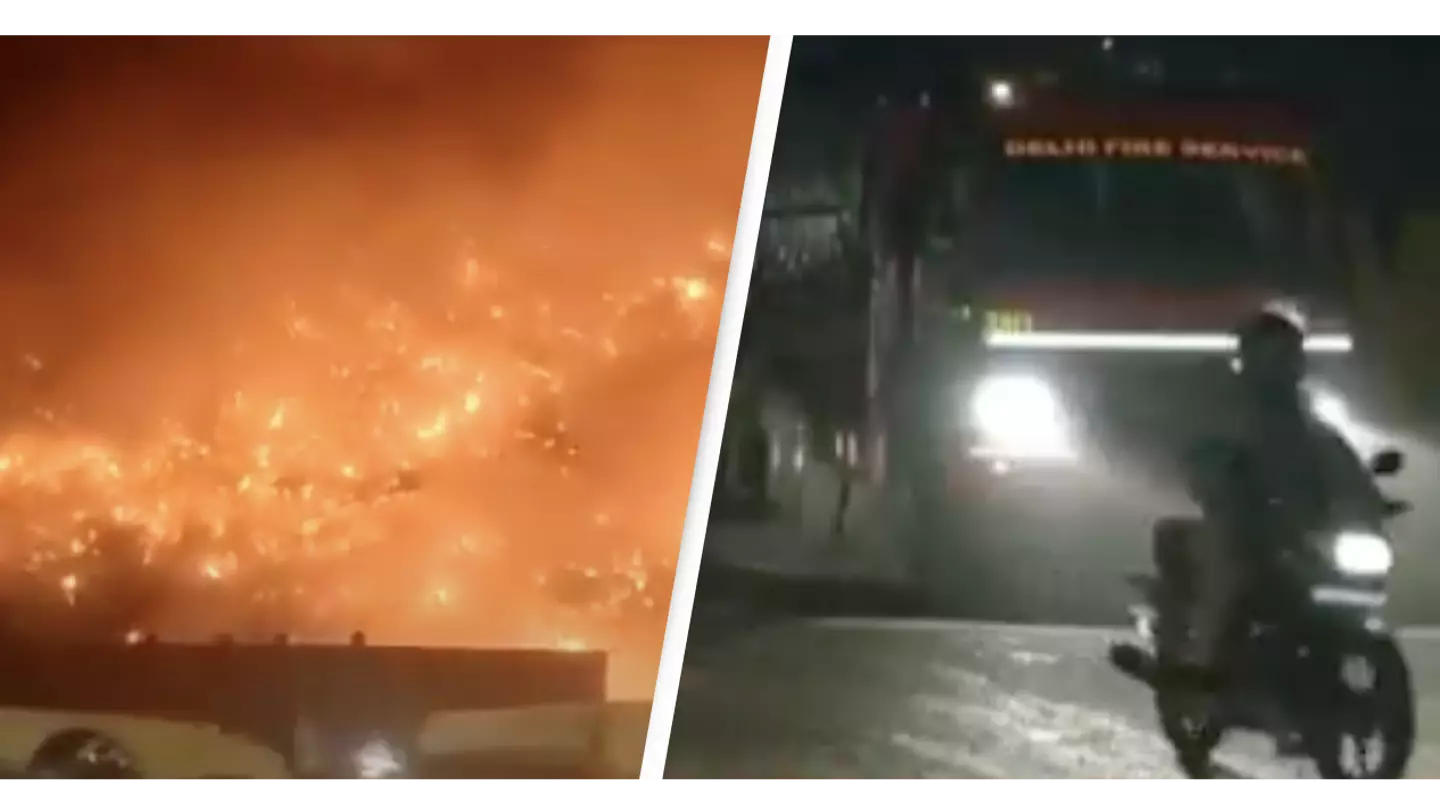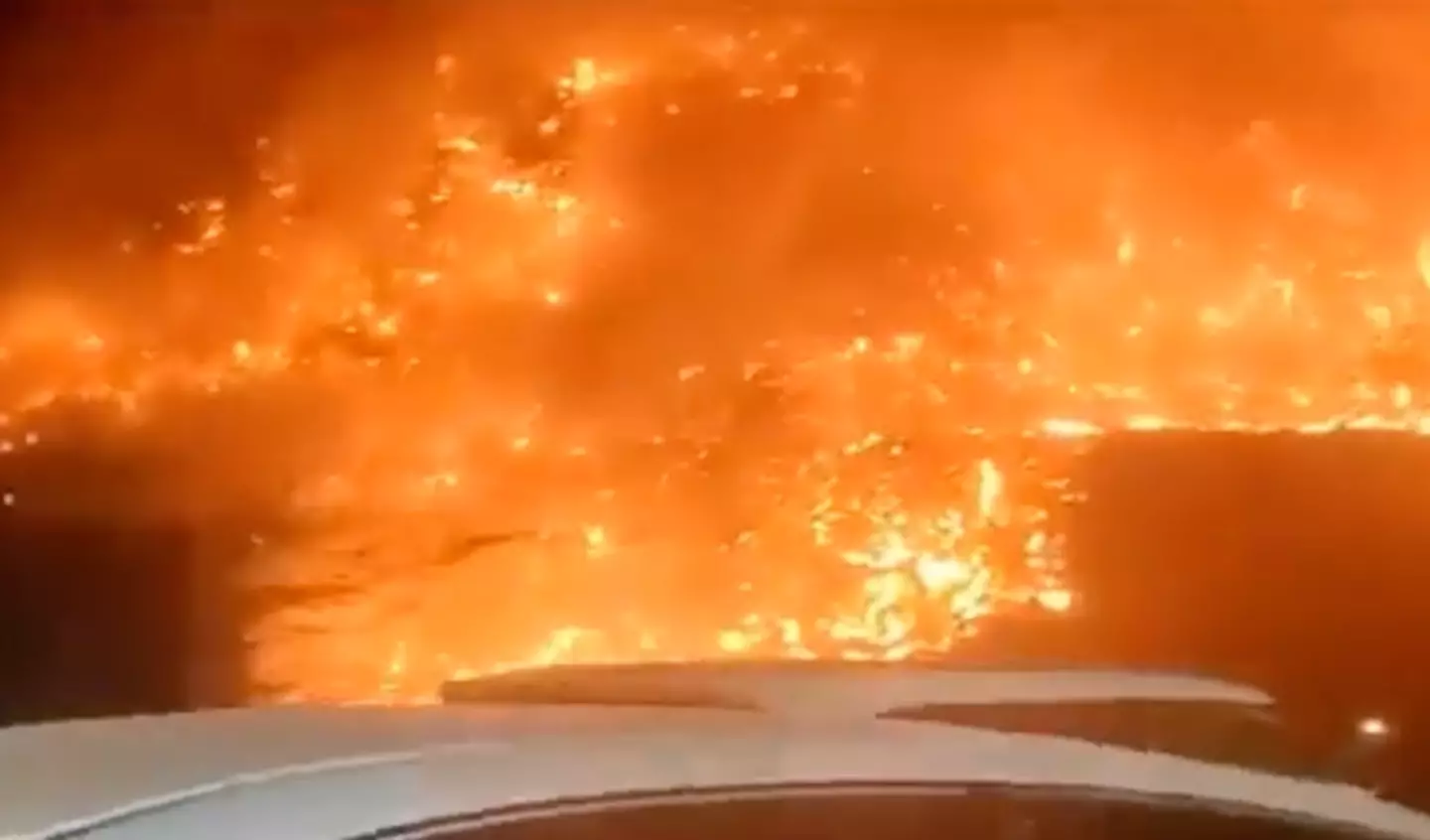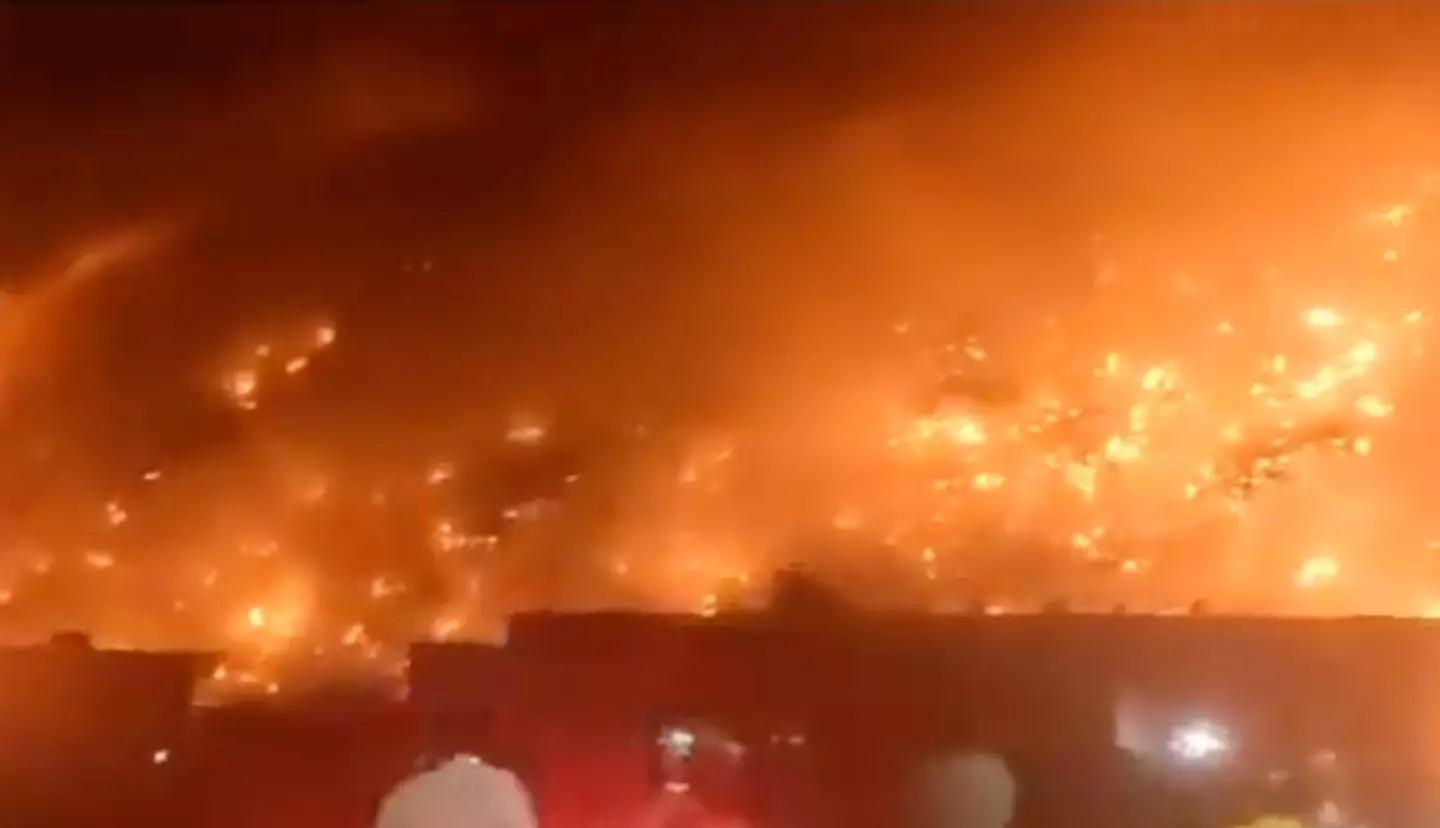
Smoke is flooding through the Indian city of New Delhi after a giant landfill site caught fire yesterday, 26 April.
The landfill, which is located in the northern region of Bhalswa, is higher than a 17-storey building, and forced people out onto the streets when it was ablaze.
This is the fourth landfill fire of its kind in the past month.
Advert
While videos from the inferno look like a freak occurrence, these types of fires are pretty common.
Bhairo Raj, an unofficial waste worker, said: "There’s a fire every year. It is not new. There is risk to life and livelihood, but what do we do?"
The fires occur when temperatures rise in the region, with Ravi Agarwal, director of a waste management advocacy group, explaining: "With high temperatures, this spontaneous combustion will take place."
The frequency of these fires seems all the more unsettling when taking into account that the Bhalswa landfill was supposed to be shut down more than a decade ago.
However, tons of rubbish are still being dumped there every day.

Fires such as this aren't out of the ordinary, as ABC reported. March 2022 was the hottest month in more than a century in India, and April has been similarly hot, which is likely to have been a factor in the most recent landfill fires.
Dr. Friederike Otto, a climate science professor, explained: "India's current heatwave has been made hotter by climate change."
At the end of March, another landfill fire broke out in Delhi, with residents left breathing unclean air.
The landfill is on the outskirts of Dehli, near Ghazipur, and caught light four times last year, according to The Guardian.
The frequency at which acrid smoke billows into Dehli from landfill fires is reflected in the World Air Quality Index, which names the city the most polluted capital in the world for the fourth year running.
The lack of a comprehensive waste management system in the region is posing a threat to residents.

Richa Singh, from the Centre for Science and Environment, said: "The problem is that it is mixed waste that has not been segregated so the fire will have released all manner of toxins – sulphur dioxide, carbon soot, nitrogen, and particulate matter into the air, making the air far worse than usual."
Dehli doesn't have a waste disposal or treatment system, so the city relies on landfills to get rid of its rubbish.
If you have a story you want to tell, send it to UNILAD via [email protected]
Topics: World News, Climate Change